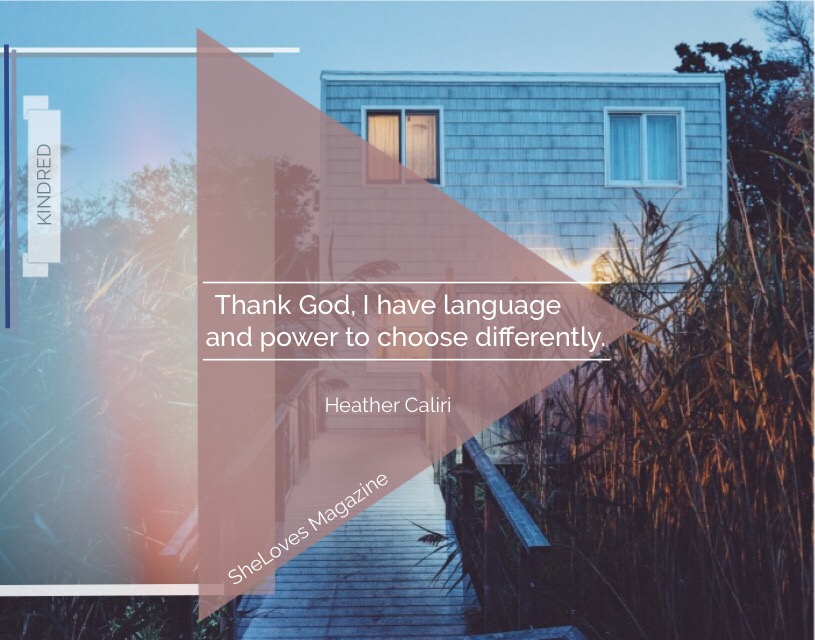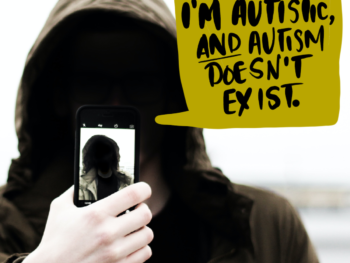
I represent the people who get more than they deserve.
The lucky ones. The golden children. The privileged, wealthy, and influential.
Oh, my dears. How can I claim to be anything other than your sister?
I know all about a life that’s unfair in my favor.
Once, during my sister’s seven-year stint living at a children’s home—a home for at-risk, orphaned, and abandoned kids—our parents invited her and her dorm-mates to drive the hour from Mesa, Arizona to have a pool party at our house.
I felt so excited to hang out with my sister’s friends. I didn’t know them yet. When we fetched Katie for visits, I waited in the hallway of her dorm with our parents while she finished packing. The girls she lived with would walk by me as if I weren’t there.
I wondered about them. Had they replaced me? Did Katie like them better than she liked me? Did they have more fun than I did, all by myself in my 5,000-square-foot house?
I envied them. I also wanted them to include me.
So the day of the party, I watched out of the large picture window in our house in Tucson for them to arrive. I felt proud and pleased to show them around; show off our creamy white carpets and understated decor.
When I saw the children’s home’s 18-passenger van accelerating up our gravel driveway, I ran out to the garage. I would make them feel special and welcome. We would all be friends.
The dozen girls exited, Katie somewhere in the middle.
But instead of greeting me, they looked around like they were on the moon, their mouths open in shock.
I looked around to see what was wrong. It all looked normal to me: the expansive driveway, the three-car garage, the large brick wall surrounding our property, the tasteful landscaping, the wild land beyond.
Why did they look so disoriented?
“You live here?” one of the girls said to me. “Just you?”
With a little sickening jolt, I saw my house through her eyes. Compared it to the children’s home—which was nice, but still an institution. Compared my life with theirs.
I realized they thought I was the pretty, spoiled stepsister in a fairy tale. In the old versions, the Grimm versions, those sisters did not fare well.
But worse, I saw how deep the chasm was between my sister and I.
“Come on,” I said, my voice faltering. “Come, see the pool.”
But really I wanted to hide, to keep them from seeing how nice the pool, the house—my life—was. Their eyes made a mockery of my desire to befriend them.
The brick wall I hadn’t really seen before encased me. When they looked at me, they could not see the person inside it.
They would not be my friends, I realized. I had been silly to hope for that.
At least that’s what I thought at the time.
But looking back, I think I sold them and myself short. Had I been allowed to spend the night at the children’s home, had I had time to learn their stories—perhaps I could have known them.
But regardless, I am so grateful to those girls. They woke me up to the dream world I lived in. They helped me see my life and be honest about it.
I saw that my sister was one of them, and so, in a way, they were all my sisters. And any division between us, any unfairness, was indeed a problem.
The day they came to my house, I assumed I was the problem. But the real problem was the unfairness that lay between us, the lack of language I had to name it—and the lack of power I had to change it.
Now I’m all grown up. And thank God, I have language and power to choose differently.
When I tell people the story of my childhood, of the weird separation between my sister and I, they usually look shocked and confused, much like those girls did when they saw my house.
But here’s the thing: my family’s story is incredibly normal. My unfair childhood is just the tip of a global iceberg.
A wall, rhetorical and real—surrounds the United States. Inside our country, we have walls of race and historic oppression. Divides of violence, justice and education.
Those of us living in nice houses do not always see our privilege.
Most importantly, the people on the other side of those divides are our real brothers and sisters.
It’s the same story as my childhood. It’s just our brothers and sisters aren’t staring us directly in the face.
When I hear people react to the word “privileged,” it’s as if they think the word means “evil” or “bad.” They protest: I have hardship too. I work hard, too.
Do I imagine hearing “It’s not my fault” underneath their protests?
It wasn’t my fault, either. It was my parents’ choice, for better or worse, to send my sister away. My parent’s wealth, their house, furniture, and their gifts to me.
Even my obliviousness, up to a certain point, was not my fault. How could I know what was beyond my experience?
But not my fault is really beside the point.
It did not change the look in the girls’ eyes when they saw the divide between us. It did not change the sickening jolt I felt when I saw my life reflected back at me.
Not my fault does not change reality: life is demonstrably unfair.
What I want to tell people who hate the word “privilege” is that learning that word is one of the best things that ever happened to me. It was a first step to understanding my childhood. And a first step to breaking down the brick wall of unfairness that keeps me divided from other people.
Only as I’ve named my family privilege have I healed the relationship with my sister. Only as I addressed it, did I start sleeping well at night. And only as I accepted it, did I find a fierce gratitude and calling to use my privileged life well.
I still struggle with shame for representing the privileged, those oblivious to their own good fortune. But to my surprise, the label “privileged” helps me let go of my shame. This label helps me take a deep breath and look around at reality with wide open eyes. It helps me seek kinship with people less privileged. Helps me listen to their stories, celebrate their lives, and learn from their resilience.
Seeing my privilege, helps me take any action I can to tear down the beautiful, suffocating brick wall that blinds me to my good fortune.
Originally published at SheLoves Magazine


